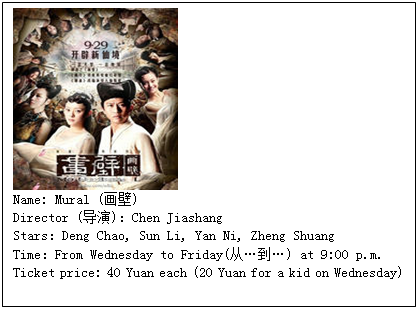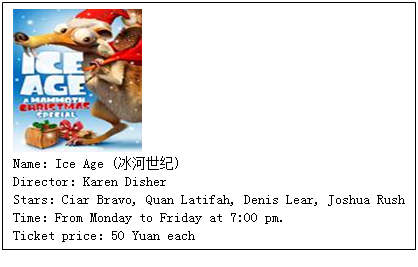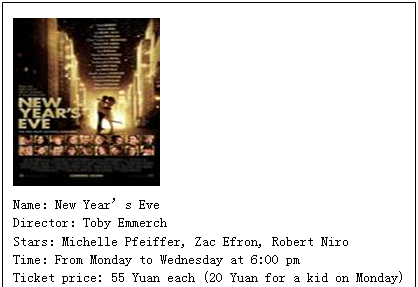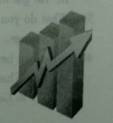
科目: 來源: 題型:閱讀理解
| Family member | What does he/she look like? |
| My father | My father is very tall. He has curly hair. He’s handsome. |
| My mother | My mother is not beautiful. She is short. She is only 1.5 meters. She has black hair. And she is fat. |
| My sister | My sister is a lovely girl. She has long curly hair. She’s of medium build. |
| My brother | My brother looks like my mother. He is short, too. He is very heavy. |
查看答案和解析>>
科目: 來源: 題型:閱讀理解
查看答案和解析>>
科目: 來源: 題型:閱讀理解



查看答案和解析>>
科目: 來源: 題型:閱讀理解
查看答案和解析>>
科目: 來源: 題型:閱讀理解

查看答案和解析>>
科目: 來源: 題型:閱讀理解
查看答案和解析>>
科目: 來源: 題型:閱讀理解
查看答案和解析>>
科目: 來源: 題型:閱讀理解
| Bayfield Shopping Coupons (贈券) |
| 1. Buy One, Get One Free Buy one shirt or tie at Daniel’s Menswear, and get another shirt or tie of the same price free. Choose from any of our sweaters and we will give you another one at no cost. Hurry to Bayfield shopping center! Offer ends November 14. |
| 2. Half-price Movie Tickets Buy any full-price movie ticket on Tuesdays or Wednesdays, and you can buy a second ticket for a friend for only half price. The latest movies are here, showing in one of our five theaters at Bayfield Shopping Center. Offer ends November 14. |
| 3. Free Soft Drink Buy any meal for at least $6 at Mike’s Café, and receive a free soft drink. We serve the best fast food in the Shopping Centre. Come in and try our delicious meals and our excellent service. You won’t be disappointed! Free soft drink offer ends November 14. |
查看答案和解析>>
科目: 來源: 題型:閱讀理解
查看答案和解析>>
科目: 來源: 題型:閱讀理解
查看答案和解析>>
湖北省互聯(lián)網(wǎng)違法和不良信息舉報平臺 | 網(wǎng)上有害信息舉報專區(qū) | 電信詐騙舉報專區(qū) | 涉歷史虛無主義有害信息舉報專區(qū) | 涉企侵權(quán)舉報專區(qū)
違法和不良信息舉報電話:027-86699610 舉報郵箱:58377363@163.com